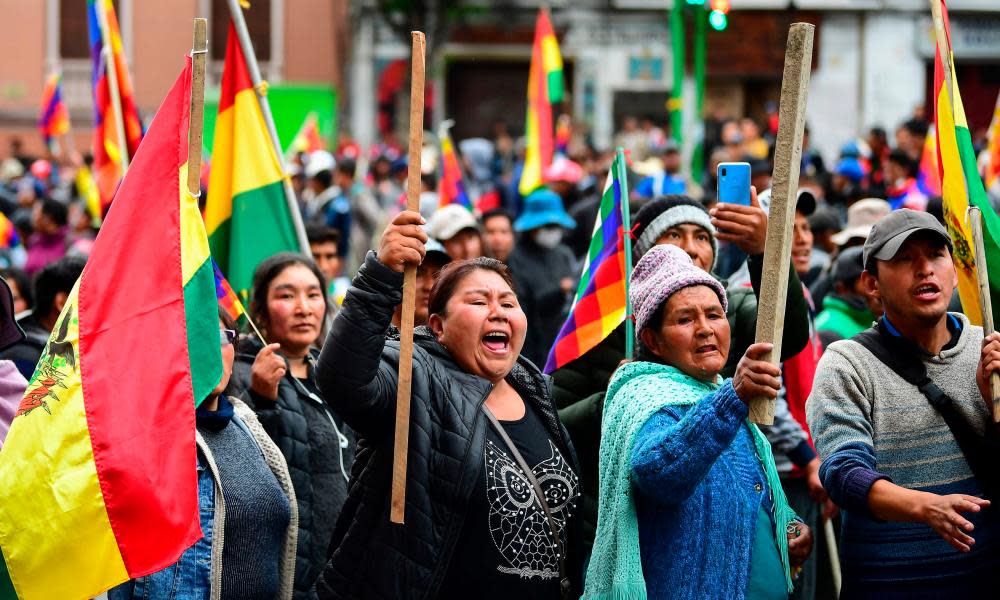UK Foreign Office warns against travel to Bolivia

The UK Foreign Office has issued a warning to avoid travel to Bolivia, after weeks of violent protests in the country.
The FCO updated its advice on 11 November to warn against all but essential travel to the entire country, saying the “political and security situation is very uncertain across Bolivia following the resignation of the president [Evo Morales] on 10 November … since the disputed elections in October”.
The advice to UK citizens who are currently in Bolivia is to contact their airline or travel company before leaving for the airport, to confirm that flights are set to take off, following disruption in recent weeks to both flights and access to airports, including El Alto in La Paz. Travellers are also urged to “avoid large crowds and public demonstrations, don’t attempt to cross blockades, and pay close attention to developments via local media and this travel advice”.
Some protests have resulted in violence in La Paz and other major towns, and the FCO warns that “further protests are likely to occur at short notice and may turn violent without warning”.
Inter-city buses have been attacked prompting the FCO to suggest travellers avoid inter-city roads where possible. Travellers should also be aware that road journeys and land border crossings are likely to take longer than planned, and land borders are subject to closure at short notice.
Travellers who have trips planned, and those already in the country, should check the cancellation cover in their insurance policies.
“Any of our customers currently in Bolivia will continue to be covered. However, we strongly recommend that they move away from the area affected immediately,” said Mia Coles, technical underwriter at Alpha Travel Insurance. “Those who have a future booking to Bolivia will be able to claim for cancellation of their trip, as long as all the necessary documents can be provided to support their claim. Most insurance policies will cover this as standard but it’s always worth checking your policy wording.”
However, anyone who purchases insurance for a trip to Bolivia after the change in advice will be unlikely to obtain a refund.
“Holidaymakers who purchase travel insurance to Bolivia after the new advice was issued, will unfortunately not be covered, as this will now be classed as a known event,” said Coles.
Some insurers are asking travellers to contact their tour operator before submitting a claim. A spokesperson from Allianz said that, as the event is “grounds for people not to travel”, travellers may be able to make a claim depending on their cancellation cover and that “if you have any pre-booked travel, accommodation or unused excursions that cannot be refunded by the tour operator” travellers can “fall back on their policy”.
Of the 1,134,000 foreign arrivals in Bolivia in 2017, 40,106 were British, according to the FCO. Travel companies operating in the region are advising travellers both in the country and with trips planned to get in touch as soon as possible to discuss alternative options.
“Following the protests and demonstrations in Bolivia, G Adventures can confirm that all its travellers are safe and accounted for. While some itineraries have been changed to avoid areas of protests, we are working with travellers and support staff on the ground to arrange alternative services and onward travel as necessary,” said G Adventures communications manager Leah Whitfield.
Audley Travel also advises travellers to contact its helpline and that rerouting is likely: “We are now rerouting clients away from Bolivia as a result of the change in FCO advice. The majority of our clients have booked trips that combine time in Bolivia with Chile and/or Peru, so alternative itineraries involve spending more time in these countries,” said Anna Scrivens, product manager for Latin America at Audley Travel.


